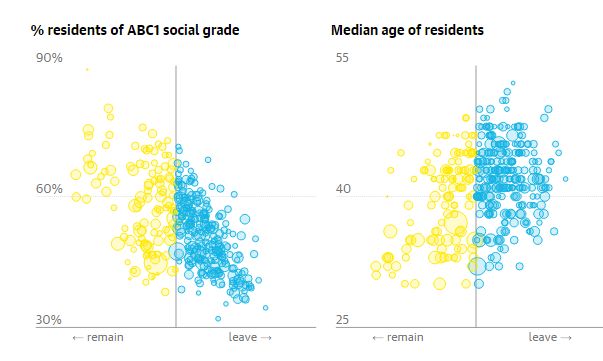This article is more than 1 year old
Wealthy youngsters more likely to be freetards than anyone else – study
Middle class self-entitled whingers also Remainians? Yarr.
The well-groomed throng of bourgeois protesters that shunned the weekly Waitrose shop and headed for London’s Parliament Square on Saturday had something in common other than a common desire to remain in the EU. The demographic that closely mirrors keen Remain voters is more likely to download content illegally than any other UK demographic.
The government’s annual study of online content consumption, conducted by Kantar for the Intellectual Property Office, shows a spooky overlap between between illegal downloaders and voters keenest on the European Union.
“Across all content types, those who downloaded or streamed illegally were skewed towards those aged under 35 (63 per cent) and ABC1 (58 per cent)” the study notes.
That also happens to be the demographic most likely to have voted Remain in the UK referendum.
Remain voters, like copyright infringers, skew to ABC1 and under-35s
Source: The Guardian.
Age groups 18-24 and 25-34 generally voted to Remain in the Referendum while more in the older age groups voted Leave. ABC1 voters voted to stay in the European Union, while the C2, D and E demographics voted for independence.

We've noted the trend before and it's evident in comments. Pirates earn above average salaries but feel they're entitled to engage in unethical behaviour because [The Man had it coming | Music today isn't played on real instruments | Nobody gets harmed | I'm a bass player] (Tick the justification you feel is most applicable.)
The study notes a rise in streaming consumption and touts a shift away from what it calls illegal (we prefer to use the word “unlicensed”) media consumption. Yet this is not quite as much as the accompanying press release suggests. Exclusively "legals" rose “significantly” according to the IPO, but only from 41 to 44 per cent.
One in four people accessed unlicensed material over a three month period, or 6.7 million of the population – with the hard core of ‘tards, who only accessed unlicensed material, adding up to five per cent of media users. That’s considerably more than 2m. Overall media consumption rose five per cent year on year, with 78m songs accessed illegally – but that’s probably down, Kantar thinks, from 96m this time last year. An increase in demand for TV and movies was reflected in an increase in infringement.
The survey confirms the trend of others in showing a fall in Bittorrent use – it’s now very much a minority hobby, down to 12 per cent from 18 per cent, even amongst infringers.
The infringement numbers count for little if people aren’t spending more to sustain the legitimate marketplace – and the good news is that they are. Spending on physical music is still greater than spending on digital music services, but the latter grew from £169m from £101m in last year’s sweep. Spending on movies grew even more impressively from £21.14 to £41.84 year on year.
So the message is: get legal services and affordable services out there, and the money should follow. This appears to be true, at least for movies and TV. The music industry has a thornier problem, though, and it's called YouTube. It's the UK's most popular music service, used by 52 per cent of music "accessors", compared to 30 per cent who found music via Spotify. It's free, but thanks to a loophole written into the UGC clauses of copyright law, doesn’t return the value from advertising that the music merits.
Apple and Spotify don't enjoy that loophole – they must get licenses upfront, and they don't have the advantage of a monopoly discovery platform (Google Search) driving people to YouTube. Yes, there is now a paid YouTube tier in some territories (not the UK, yet) but it means that Google’s incentives are aligned with preserving its vast advertising operation, based on UGC uploads, and repelling a mature marketplace where intellectual property rights are traded. That keeps Google’s beancounters happy but inhibits the growth of new services.
Print and newspapers aren’t discussed because their dilemma isn’t directly related to copyright infringement, but rather self harm. Newspapers gave away their valuable content online and now find it is monetised for a mere fraction of what it’s worth. The answers here may lie making it easier to pay. Your reporter was recently obliged to change his credit card (after the old one was lost), and is ploughing through updating dozens of online services, updating each one. Hours I'll never get back.
This is the sixth such survey since 2012, and you can find a lurid graphic with the key numbers here.®
Bootnote
This is a three-month tracker that's conducted annually, so any hard numbers reflect consumption/spending over a three month period, not 12 months.
